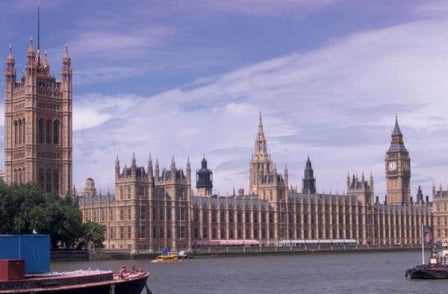
Cabinet Secretary Sir Jeremy Heywood was directed by the Prime Minister to contact the Guardian about the classified material handed over by Edward Snowden.
It has been reported that this is the figure "from the centre of Government" who Guardian editor Alan Rusbridger said called him last month.
Rusbridger revealed yesterday that The Guardian had agreed to destroy computer hard drives containing unpublished information from NSA whistleblower Edward Snowden to avoid the threat of legal action. But Rusbridger made clear in his piece that the gesture was symbolic and that The Guardian intended to continue to make use of unpublished information from Snowden by working on it overseas.
Yesterday Guardian journalist Glenn Greenwald said that confiscation of computer equipment from his partner David Miranda at Heathrow airport on Sunday was futiile because he had multiple copies of the Snowden information.
The Guardian was asked to destroy leaked information from Snowden after publishing stories which included details of secret UK spying operations at an international summit.
Press Gazette has previously revealed that the Guardian's Edward Snowden-sourced revelations about UK spying at the 2009 G20 summit were published in June without prior consultation with the DA-Notice secretary.
The DA-Notiice committee claims that it does not act as a censor but merely offers confidential advice to allow editors to make their own decision on whether to publish information which could put UK servicemen and women at risk.
According to The Independent, the intention of the call from Heywood was to spell out the serious consequences of continuing to publish material about UK and US intelligence operations.
Meanwhile, Home Secretary Theresa May yesterday defended the detention of Miranda for nine hours under anti-terrorism legislation.
She told the BBC: "If it is believed that somebody has in their possession highly sensitive stolen information which could help terrorists, which could lead to a loss of lives, then it is right that the police act and that is what the law enables them to do."
Miranda was detained at Heathrow Airport under Schedule 7 of the Terrorism Act 2000 as he changed planes on a journey from Berlin to his home in Brazil.
He claimed he was held for nine hours by agents, who questioned him about his "entire life" and took his "computer, video game, mobile phone, my memory card – everything".
Schedule 7 applies only at airports, ports and border areas, allowing officers to stop, search, question and detain individuals
Greenwald described its use as "a profound attack on press freedoms and the news-gathering process".
A Home Office spokesman said: "The Government and the police have a duty to protect the public and our national security.
"If the police believe that an individual is in possession of highly-sensitive stolen information that would help terrorism, then they should act and the law provides them with a framework to do that.
"Those who oppose this sort of action need to think about what they are condoning."
Lawyers for Miranda have written to both May and Britain's most senior police officer challenging the legality of the decision to detain him.
Email pged@pressgazette.co.uk to point out mistakes, provide story tips or send in a letter for publication on our "Letters Page" blog
